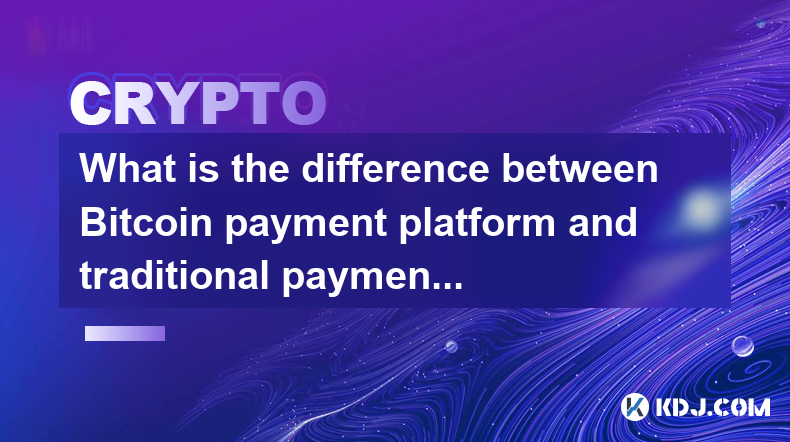-
 Bitcoin
Bitcoin $117,953.1650
-0.44% -
 Ethereum
Ethereum $3,404.6769
7.20% -
 XRP
XRP $3.2145
7.63% -
 Tether USDt
Tether USDt $1.0001
0.01% -
 BNB
BNB $717.7875
3.79% -
 Solana
Solana $175.1351
5.00% -
 USDC
USDC $0.9997
-0.02% -
 Dogecoin
Dogecoin $0.2140
6.36% -
 TRON
TRON $0.3125
3.78% -
 Cardano
Cardano $0.7984
6.61% -
 Hyperliquid
Hyperliquid $46.3875
-2.89% -
 Stellar
Stellar $0.4661
-1.97% -
 Sui
Sui $3.9769
-0.95% -
 Chainlink
Chainlink $17.0299
3.26% -
 Hedera
Hedera $0.2442
2.02% -
 Bitcoin Cash
Bitcoin Cash $494.1589
-0.49% -
 Avalanche
Avalanche $22.7305
3.32% -
 Shiba Inu
Shiba Inu $0.0...01429
3.24% -
 UNUS SED LEO
UNUS SED LEO $8.8207
-0.20% -
 Toncoin
Toncoin $3.2223
3.73% -
 Litecoin
Litecoin $99.4978
2.54% -
 Polkadot
Polkadot $4.1940
2.13% -
 Monero
Monero $341.6175
2.76% -
 Pepe
Pepe $0.0...01357
4.19% -
 Uniswap
Uniswap $8.8637
-2.74% -
 Bitget Token
Bitget Token $4.7017
0.48% -
 Dai
Dai $0.9998
-0.03% -
 Ethena USDe
Ethena USDe $1.0003
-0.04% -
 Aave
Aave $320.8518
-2.86% -
 Bittensor
Bittensor $428.9747
-1.94%
What is the difference between Bitcoin payment platform and traditional payment methods?
Bitcoin offers enhanced security and lower costs than traditional methods, but its transaction speed and user experience can vary.
Apr 20, 2025 at 06:21 pm

The world of payments has seen significant evolution with the advent of cryptocurrencies, particularly Bitcoin. Understanding the differences between Bitcoin payment platforms and traditional payment methods is crucial for anyone looking to navigate the financial landscape effectively. This article delves into the key distinctions, exploring aspects such as security, speed, cost, accessibility, and privacy.
Security
Bitcoin payment platforms offer a unique approach to security compared to traditional payment methods. Bitcoin transactions are secured through cryptographic means, utilizing a decentralized network of computers to validate and record transactions on the blockchain. This means that once a transaction is confirmed, it is nearly impossible to alter or reverse, providing a high level of security against fraud.
In contrast, traditional payment methods such as credit cards and bank transfers rely on centralized systems. These systems are more vulnerable to hacking and fraud because they have a single point of failure. For instance, if a bank's database is compromised, millions of users' data could be at risk. Additionally, traditional methods often require users to share sensitive information, increasing the potential for identity theft.
Speed
When it comes to transaction speed, Bitcoin payment platforms can offer both advantages and disadvantages. Bitcoin transactions can be processed almost instantly, especially when using services like the Lightning Network, which enables off-chain transactions. However, the time it takes for a transaction to be confirmed on the blockchain can vary, typically ranging from 10 minutes to an hour, depending on network congestion and the transaction fee paid.
Traditional payment methods generally have more predictable processing times. For example, credit card transactions are usually processed within seconds to minutes, while bank transfers can take anywhere from a few hours to several days, depending on the countries involved and the banks' policies. The predictability of traditional methods can be a significant advantage for businesses that need to manage cash flow effectively.
Cost
The cost of using Bitcoin payment platforms can be significantly lower than traditional payment methods. Bitcoin transactions typically involve a small transaction fee, which is paid to miners for processing and validating the transaction. These fees can vary based on network congestion but are generally lower than the fees associated with credit card transactions or international bank transfers.
On the other hand, traditional payment methods often come with a variety of fees. Credit card transactions, for instance, can incur merchant fees that range from 1.5% to 3.5% of the transaction amount. International bank transfers can be even more expensive, with fees that can reach up to 5% of the transferred amount. These costs can add up quickly, making Bitcoin an attractive alternative for businesses and individuals looking to minimize transaction expenses.
Accessibility
Bitcoin payment platforms offer unparalleled accessibility, as anyone with an internet connection can use Bitcoin to send and receive payments. This is particularly beneficial for individuals in countries with underdeveloped banking systems or those who are unbanked. Bitcoin wallets can be set up quickly and easily, requiring only a smartphone or computer.
In contrast, traditional payment methods often require users to have a bank account or credit card, which can be a barrier for many people around the world. Additionally, traditional methods can be subject to geographic restrictions and may not be available in certain countries or regions. This can limit their usefulness for international transactions and for individuals in less developed economies.
Privacy
Privacy is another area where Bitcoin payment platforms and traditional payment methods differ significantly. Bitcoin transactions are pseudonymous, meaning that while the transactions are recorded on the public blockchain, the identities of the parties involved are not directly linked to the transaction. This can provide a higher level of privacy for users who wish to keep their financial activities confidential.
However, traditional payment methods often require users to provide personal information, such as their name, address, and social security number, to complete a transaction. This information is stored by banks and credit card companies, which can be a concern for individuals worried about data privacy. Additionally, traditional methods are subject to more stringent regulations, which can require financial institutions to report certain transactions to government authorities.
User Experience
The user experience of Bitcoin payment platforms can vary widely depending on the specific platform and wallet being used. Some Bitcoin wallets are designed to be user-friendly, offering intuitive interfaces and easy-to-understand instructions. However, the technical nature of cryptocurrencies can still be a barrier for some users, particularly those who are not familiar with concepts like private keys and blockchain technology.
Traditional payment methods, on the other hand, are generally more familiar to the average consumer. Most people are accustomed to using credit cards, debit cards, and bank transfers, and the processes for these methods are well-established and widely understood. This familiarity can make traditional methods more appealing to users who value ease of use and convenience.
Frequently Asked Questions
Q: Can Bitcoin be used for everyday purchases?
A: Yes, Bitcoin can be used for everyday purchases, although its acceptance varies by merchant. Many online retailers and some physical stores accept Bitcoin as a form of payment. However, the volatility of Bitcoin's value can make it less practical for everyday use compared to traditional currencies.
Q: Are Bitcoin transactions reversible?
A: No, Bitcoin transactions are not reversible once they are confirmed on the blockchain. This is one of the key features of Bitcoin, providing security and finality to transactions. If a transaction is sent to the wrong address, it cannot be undone, which underscores the importance of double-checking transaction details before sending.
Q: How can I protect my Bitcoin from theft?
A: To protect your Bitcoin from theft, it is essential to use secure wallets and follow best practices for managing your private keys. Hardware wallets, which store your private keys offline, are considered one of the most secure options. Additionally, enabling two-factor authentication on your wallet and being cautious of phishing attempts can help safeguard your funds.
Q: What are the tax implications of using Bitcoin?
A: The tax implications of using Bitcoin vary by jurisdiction. In many countries, Bitcoin is treated as a capital asset, meaning that gains from selling or using Bitcoin may be subject to capital gains tax. It is important to consult with a tax professional to understand the specific tax obligations in your area.
Disclaimer:info@kdj.com
The information provided is not trading advice. kdj.com does not assume any responsibility for any investments made based on the information provided in this article. Cryptocurrencies are highly volatile and it is highly recommended that you invest with caution after thorough research!
If you believe that the content used on this website infringes your copyright, please contact us immediately (info@kdj.com) and we will delete it promptly.
- C2 Blockchain, DOG Coins, and Acquisition: A Meme-Native Bitcoin Asset
- 2025-07-17 20:30:12
- Ethereum, Pepe, Crypto: Navigating the Wild West of Digital Assets
- 2025-07-17 20:30:12
- PUMP Presale Mania: CEX Transfers and the Token's Wild Ride
- 2025-07-17 20:50:11
- Hilbert Group & Tokenisation: Seed Round Success Signals DeFi's Institutional Future
- 2025-07-17 20:50:12
- Trump, Meme Coins, and Tokens: A Wild Ride in Crypto
- 2025-07-17 18:50:12
- Ripple's EU Expansion: RLUSD Takes Center Stage, XRP's Role Defined
- 2025-07-17 18:30:12
Related knowledge

How to customize USDT TRC20 mining fees? Flexible adjustment tutorial
Jun 13,2025 at 01:42am
Understanding USDT TRC20 Mining FeesMining fees on the TRON (TRC20) network are essential for processing transactions. Unlike Bitcoin or Ethereum, whe...

USDT TRC20 transaction is stuck? Solution summary
Jun 14,2025 at 11:15pm
Understanding USDT TRC20 TransactionsWhen users mention that a USDT TRC20 transaction is stuck, they typically refer to a situation where the transfer...

How to cancel USDT TRC20 unconfirmed transactions? Operation guide
Jun 13,2025 at 11:01pm
Understanding USDT TRC20 Unconfirmed TransactionsWhen dealing with USDT TRC20 transactions, it’s crucial to understand what an unconfirmed transaction...

How to check USDT TRC20 balance? Introduction to multiple query methods
Jun 21,2025 at 02:42am
Understanding USDT TRC20 and Its ImportanceUSDT (Tether) is one of the most widely used stablecoins in the cryptocurrency market. It exists on multipl...

What to do if USDT TRC20 transfers are congested? Speed up trading skills
Jun 13,2025 at 09:56am
Understanding USDT TRC20 Transfer CongestionWhen transferring USDT TRC20, users may occasionally experience delays or congestion. This typically occur...

The relationship between USDT TRC20 and TRON chain: technical background analysis
Jun 12,2025 at 01:28pm
What is USDT TRC20?USDT TRC20 refers to the Tether (USDT) token issued on the TRON blockchain using the TRC-20 standard. Unlike the more commonly know...

How to customize USDT TRC20 mining fees? Flexible adjustment tutorial
Jun 13,2025 at 01:42am
Understanding USDT TRC20 Mining FeesMining fees on the TRON (TRC20) network are essential for processing transactions. Unlike Bitcoin or Ethereum, whe...

USDT TRC20 transaction is stuck? Solution summary
Jun 14,2025 at 11:15pm
Understanding USDT TRC20 TransactionsWhen users mention that a USDT TRC20 transaction is stuck, they typically refer to a situation where the transfer...

How to cancel USDT TRC20 unconfirmed transactions? Operation guide
Jun 13,2025 at 11:01pm
Understanding USDT TRC20 Unconfirmed TransactionsWhen dealing with USDT TRC20 transactions, it’s crucial to understand what an unconfirmed transaction...

How to check USDT TRC20 balance? Introduction to multiple query methods
Jun 21,2025 at 02:42am
Understanding USDT TRC20 and Its ImportanceUSDT (Tether) is one of the most widely used stablecoins in the cryptocurrency market. It exists on multipl...

What to do if USDT TRC20 transfers are congested? Speed up trading skills
Jun 13,2025 at 09:56am
Understanding USDT TRC20 Transfer CongestionWhen transferring USDT TRC20, users may occasionally experience delays or congestion. This typically occur...

The relationship between USDT TRC20 and TRON chain: technical background analysis
Jun 12,2025 at 01:28pm
What is USDT TRC20?USDT TRC20 refers to the Tether (USDT) token issued on the TRON blockchain using the TRC-20 standard. Unlike the more commonly know...
See all articles

























































































